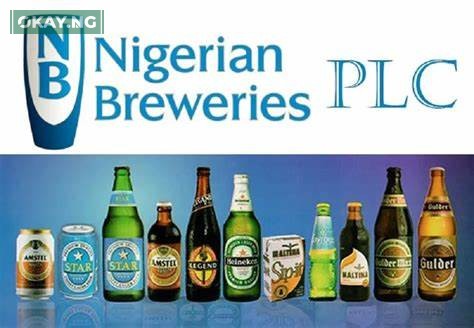In a strategic move to diversify its product offerings and solidify its foothold in the Nigerian beverage market, Nigerian Breweries, a subsidiary of Heineken N.V., has finalized the complete acquisition of Distell Wines and Spirits Nigeria Limited. This decisive action, following the initial 80% stake acquisition last June, signals the brewing giant’s intent to capture a larger share of the burgeoning wine and spirits segment.
The full acquisition, facilitated by a sale and purchase agreement with minority shareholders Ekulo International Limited and Next International Nigeria Limited, each holding a 10% stake, aims to streamline operations and accelerate decision-making processes. As stated in their official release, the move “will help to reduce complexities” and expedite the company’s diversification strategy, particularly as it seeks to offset challenges faced in the beer market.
Last June, CEO Hans Essaadi articulated the strategic rationale, emphasizing that the acquisition “is part of efforts to provide access to a complementary multi-category portfolio of fast-growing brands of wines and spirits market segment and capture significant growth opportunities in the wines and spirits segment of the brewing industry.” This expansion includes notable brands like Chamdor, Hunters Dry, 4th Street, and Savanna, alongside Nigerian Breweries’ existing imported portfolio, which features Drosty Hoff and Nederburg wines, Amarula Cream Liqueur, and Bain’s Whisky.
The company has also relocated Distell’s manufacturing operations to its own facility, a move anticipated to “ramp up the production capacity” and leverage economies of scale. This integration is expected to enhance operational efficiency and streamline production, ultimately benefiting consumers through potentially improved product availability and pricing.
However, this strategic expansion occurs against a backdrop of economic volatility. Nigerian Breweries reported a record net loss of N145 billion in the previous year, primarily attributed to the sharp devaluation of the naira. This financial pressure underscores the company’s drive to diversify and find new avenues for growth. As an observer, I recognize that this move is not just about market share, but about securing long-term financial stability in a challenging economic climate.
For consumers, this could mean a wider range of beverage choices and potentially more competitive pricing. For employees, the integration and expansion may bring new opportunities and challenges. The impact on local distributors and retailers will also be closely watched, as the combined entity seeks to optimize its supply chain and market reach.
From an economic perspective, this acquisition signals a strategic realignment within the Nigerian beverage industry. It reflects a broader trend of companies seeking to diversify their portfolios to mitigate risks associated with single-product markets. The long-term implications for the Nigerian economy, particularly in terms of job creation and market competition, remain to be seen.
While Nigerian Breweries’ total assets saw a marginal increase, reaching N1.14 trillion, the company’s focus on diversifying its revenue streams through this acquisition suggests a proactive approach to navigating the current economic landscape. As the market evolves, the impact of this strategic move will be closely monitored by industry analysts and consumers alike.













